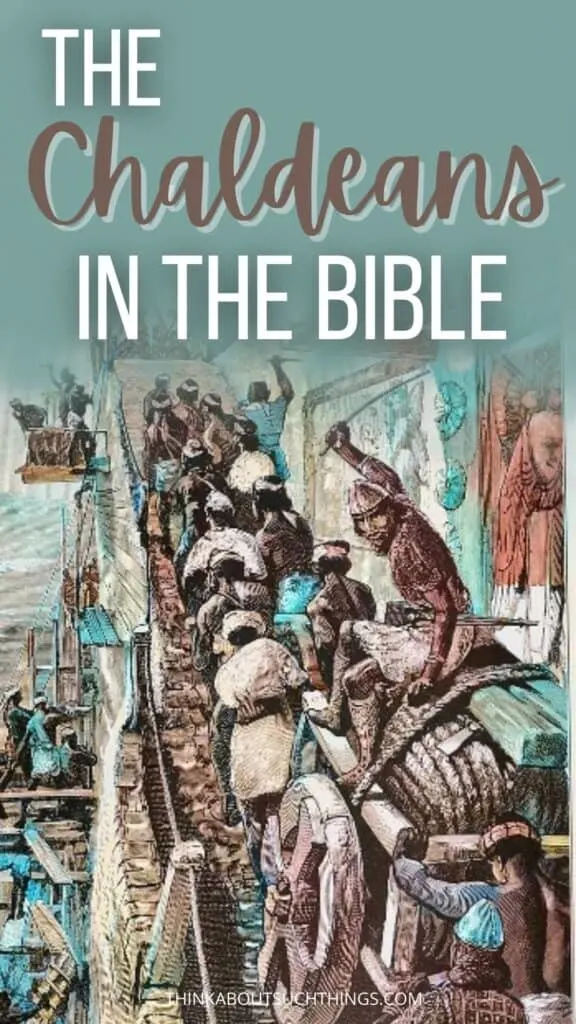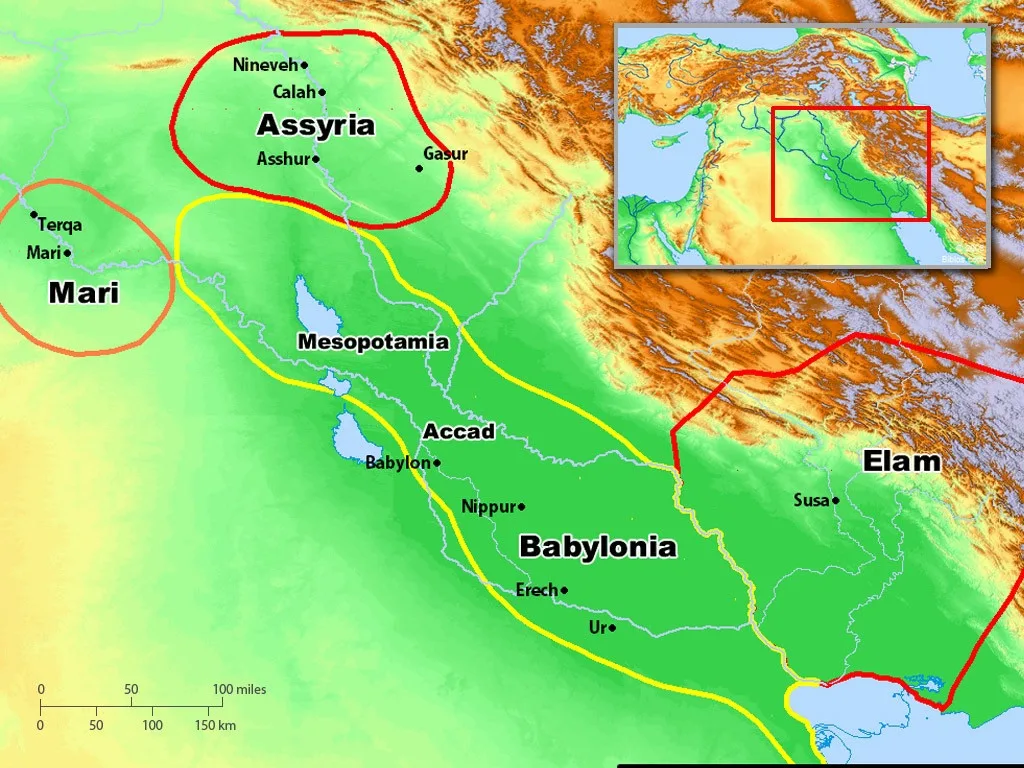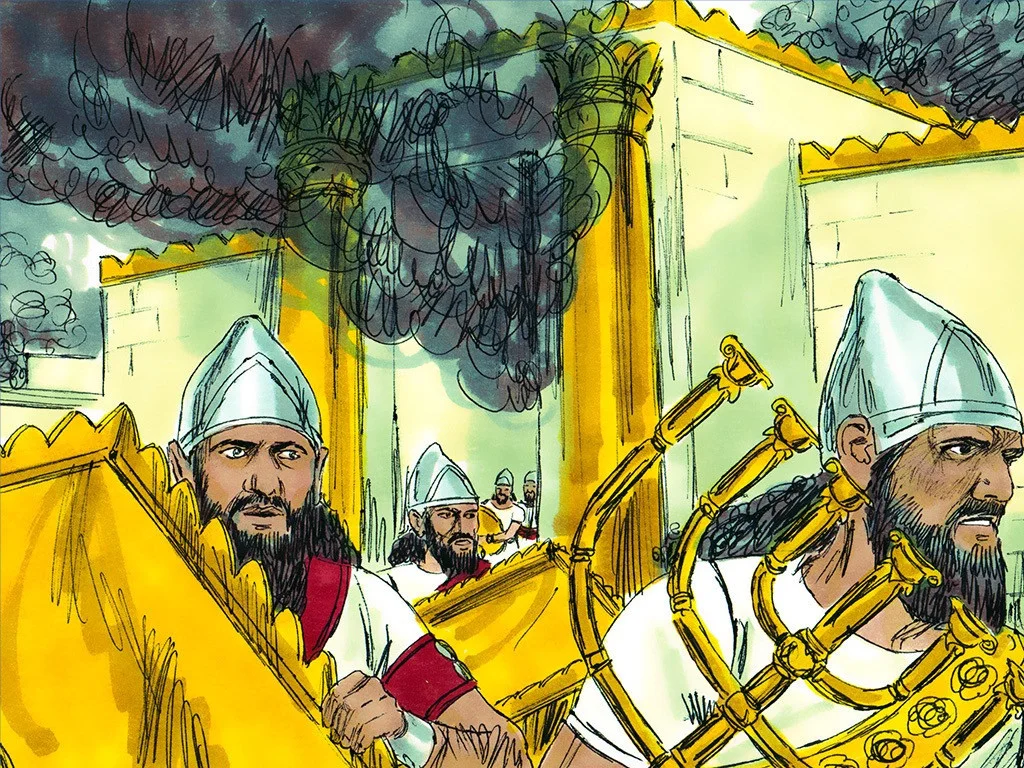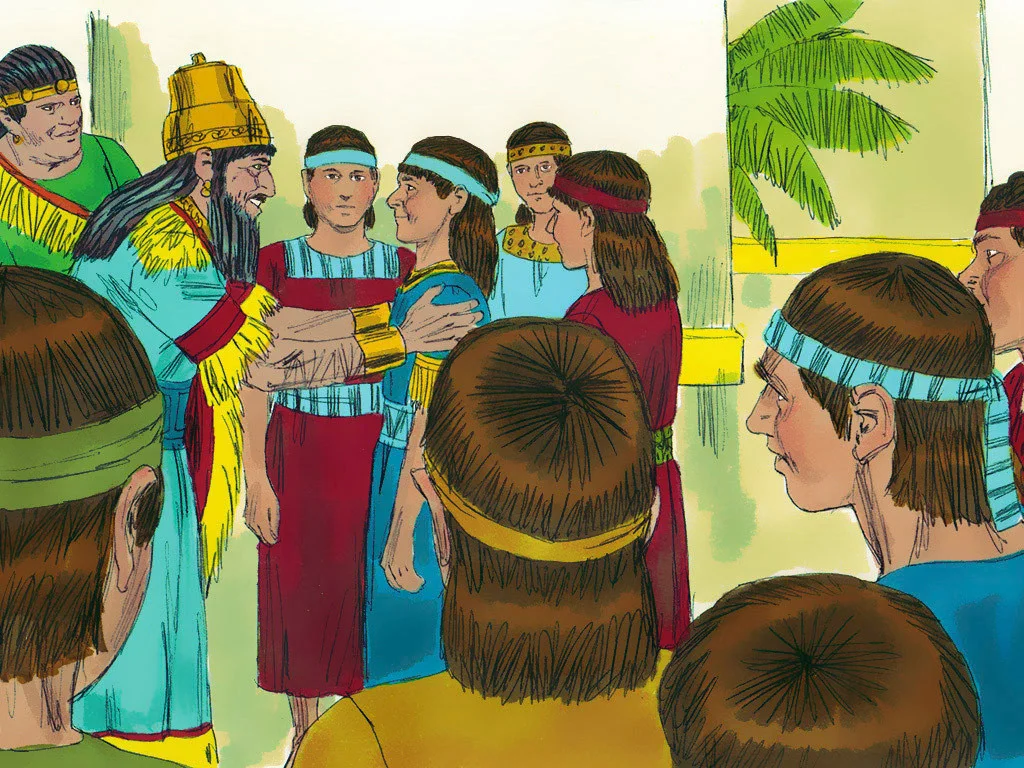In this article, we will explore the world of the Chaldeans in the Bible. We will answer key questions like who the Chaldeans were, where they came from, and what we can learn. So, grab your Bible, and let’s study…
There are so many nations and peoples mentioned in the Bible that it can all get a bit confusing at times. Some are still here, like the Egyptians, but many tribes and nations are gone, like the Amalekites and Canaanites.
One nation that’s only discussed occasionally but plays a crucial role is the Chaldeans.
The Chaldean empire is mentioned about 80 times throughout the Bible, and they changed the course of Israel’s history in many ways and played a huge role in the fulfillment of prophecy.
So, who were the Chaldeans in the Bible, and what made them significant? Let’s dive into the history and Biblical meaning of the Chaldeans.

Who Were The Chaldeans? Were they Babylonians??
The Chaldeans and/or the Chaldean empire were a semi-nomadic tribe that lived in the southern portion of ancient Babylon and Mesopotamia along the Euphrates and Tigris rivers (in modern-day Iraq).

People often use the name Chaldean to refer to any Babylonian, mainly because the Chaldeans were so intermixed with the other Babylonians by the time they became important in the Bible.
As time progressed, some Chaldeans became the rulers of Babylon. That includes some of the Babylonian kings mentioned in the Bible, such as Nebuchadnezzar and Belshazzar.
Many historians believe that, by this time in the Bible, the word “Chaldean” didn’t refer to the tribe or the group of people but rather to a select group of Babylonians (perhaps descendants of the original tribe) that had exceptional wisdom.
Specifically, we know from archaeological digs that they were polytheistic people who were very advanced in astrology, astronomy, and mathematics. Sounds familiar to the prophet Daniel.
Some historians believe that the wise men or magi that came to worship Jesus after His birth originated from the remnants of this group because they understood astrology and astronomy well enough to follow a star to the King of the Jews.
The Chaldeans In The Bible
Now let’s look at the occurrences of the Chaldeans in the Bible or sometimes called the Chaldees, and see what relevance they have. But before we do that, let’s look at what the Strong’s Concordance has to say about the word Chaldean in Hebrew.
כַּשְׂדִּי Kasdîy, kas-dee’; (occasionally with enclitic) כַּשְׂדִּימָה Kasdîymâh; towards the Kasdites into Chaldea), patronymically from H3777 (only in the plural); a Kasdite, or descendant of Kesed; by implication, a Chaldaean (as if so descended); also an astrologer (as if proverbial of that people:—Chaldeans, Chaldees, inhabitants of Chaldea).
כַּשְׂדַּי Kasday, kas-dah’-ee; (Aramaic) corresponding to H3778; a Chaldaean or inhabitant of Chaldaea; by implication, a Magian or professional astrologer:—Chaldean.
Ties To Israel: Ur of the Chaldeans
The Bible’s first mention of the Chaldeans is in Genesis 11:28, which says,
“Haran died in the presence of his father Terah in the land of his kindred, in Ur of the Chaldeans.”
When you carry on reading this portion, you will notice that it’s basically Abraham’s origin story. The forefather of Israel was a Chaldean before God called him away to Canaan.
This means that the Israelites and the Chaldeans were blood-related, even though it was many generations before Israel became its own nation.
It’s an interesting fact to keep in mind as we continue.
Destruction Of Judah
In 2 Kings 24:2, we see God’s judgment on Judah because of their repeated fall into idolatry and rejection of God. The verse says,
“And the LORD sent against him bands of the Chaldeans and bands of the Syrians and bands of the Moabites and bands of the Ammonites, and sent them against Judah to destroy it, according to the word of the LORD that He spoke by His servants the prophets.”

We know that Israel split into two kingdoms: Israel and Judah. Though the ten tribes remaining in Israel were destroyed and scattered throughout the nations, the kingdom of Judah was also conquered by Babylon, and many were carried away into captivity.
Many of the prophets warned the people of Israel and Judah over the centuries leading up to this event, and many were so specific that they referred to the Chaldeans by name.
Chaldeans In The Book Of Daniel

The book of Daniel refers to the Chaldeans in a few different contexts.
The first is in Daniel 1:4, which mentions how the Babylonian captors chose several of Israel’s youths to teach them the Chaldean language and literature. They specifically chose those who were healthy and showed wisdom, which is in line with the theory that the name Chaldeans, by this point, referred more to a social class than an entire tribe.
Secondly, we can see that the line of Babylonian rulers at that stage was also Chaldean. For example, Daniel 5:30 AMP says,
30 During that same night Belshazzar the [last] Chaldean king was slain [by troops of the invading army].
The third fact we can see from the Book of Daniel is that the Chaldeans were considered wise to the point where the kings used them as advisors and spiritual guides.
For example, Daniel 2:2 AMP says,
Then the king gave a command to call the magicians, the enchanters, the sorcerers, and the Chaldeans to tell the king his dreams. So they came in and stood before the king.
That led to the fourth (and perhaps most important) aspect: the Chaldeans planned the destruction of the Jews.
Daniel 3:8-12 tells us how the Chaldeans, as the king’s advisors, told Nebuchadnezzar that Daniel’s friends, Shadrach, Meshach, and Abednego, were refusing to fall down on their knees and worship the king’s golden image and had to be thrown into a fiery furnace.
They did this out of jealousy because the king respected the Jewish youths more than his Chaldean advisors.
The rest of the chapter shows how Nebuchadnezzar had to execute the promised judgment on those three, but how God saved them from the fiery death because of their faith and testimony, causing the king to honor the God of the Jews.
It’s a powerful story of the power and faithfulness of our God!
The Destruction Of Babylon
Though this portion doesn’t necessarily refer to the Chaldeans by name, we know by now that the Chaldeans were a central part of the Babylonian authority and power, so when God promises the destruction of Babylon in Jeremiah 51 (among others), we know that the Chaldeans with all their wisdom are included in that promise.
Read Jeremiah 51 here.
What Believers Can Learn From The Chaldeans Today
There are a few lessons that modern believers can take from the Chaldeans.
The first is that God is always above the wisdom of man. As wise and intelligent as the Chaldeans were, there were many cases where the Chaldeans could not answer the king’s questions and interpret dreams, but Daniel could do so through the wisdom of God.
Sometimes, a person may say something that seems like wisdom, but if it is unbiblical, we are to disregard it because God’s wisdom is always supreme and knows best.
The second is that God can use anyone to fulfill His purpose. Even the wise and unrighteous Chaldeans and Babylonians were tools that God used to execute His judgment and fulfill His purpose for His people.
The purpose seems negative, but it was not permanent – God planned for His people to be taken away to bring them to repentance, and He used the mighty Chaldeans to do His bidding without them even realizing it.
The negative aspects of the world around us may seem overwhelming. Still, God can use that same negative and unholy power to bring His perfect will around, which should encourage all believers and change how we pray about our circumstances.
The third point is that no power or might on earth can stand before the wrath of God. Yes, God used the Chaldeans to bring judgment upon Israel and Judah, but He also took vengeance on the nation by utterly destroying it.
The mighty Babylon, with all of its incredible wisdom, eventually came to a fall, as God promised it would, and all its so-called wisdom fell with it.
Whatever power we face on earth, we can know for a fact that God is still greater. No might that lifts itself against God will remain standing, and as we are drawing closer to the return of Christ, this thought should fill believers with peace, courage, and boldness to do what God instructed us to do: preach the gospel of His Kingdom.
To recap what we have learned about the Chaldeans in the Bible. They were closely related to Israel. Both were Semitic nations, but the difference was that Israel was a nation that God set aside as His holy people.
Despite the wisdom, power, and authority that the Chaldeans exercised in Babylon, God used them for His purpose, showed His power in their midst, and eventually destroyed them.
We as believers can take comfort from this fact because, no matter how great or mighty an adversary or nation may seem, God still commands the final authority and the ultimate power.
I hope you have enjoyed this study and that it has stirred your heart to get into God’s Word more! And thank you, Sweet Publishing / FreeBibleimages.org, for letting me use the images above.

Melissa is a passionate minister, speaker and an ongoing learner of the Bible. She has been involved in church and vocational ministry for over 18 years. And is the founder of Think About Such Things. She has the heart to equip the saints by helping them get into the Word of God and fall more in love with Jesus. She also enjoys family, cooking, and reading.
She has spoken in churches in California, Oregon, Texas, and Mexico and has been featured in Guidepost Magazine and All Recipes Magazine. Read More…
